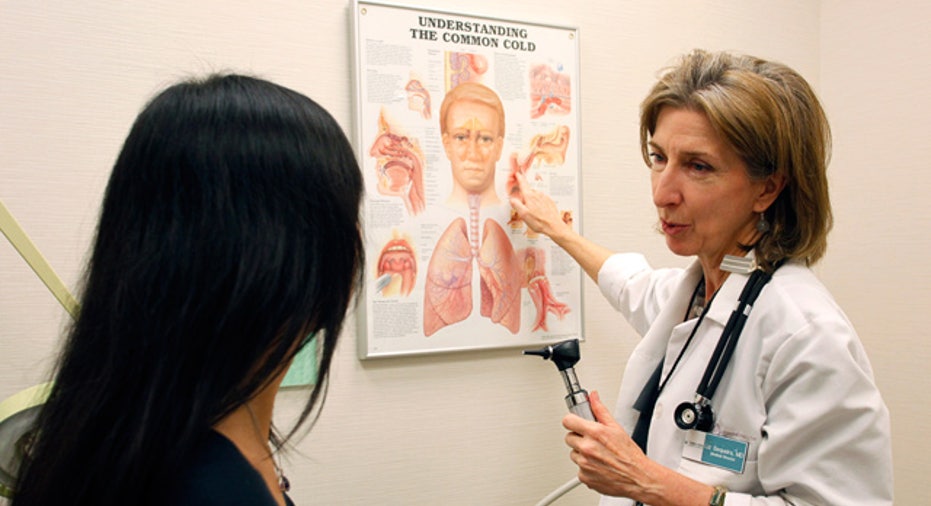Tax Enigma: Is it a Medical or Business Expense?

A client called me up last week, lets call him Ted, telling me he has a growth in his nose that must be removed. The growth not only impedes his breathing, but it suppresses his sense of smell, which is crucial to his occupation as a buyer in the wine industry; he needs to discern the oaky or mousy-biscuity or fruity qualities of various brands. This is definitely a deductible medical expense, but heres his question: Can I write this off as a business expense? I need my nose for my job.
You may ask: what is the difference as long as you can take the expense as a deduction? Well, its all in the math. Medical expenses are subject to a haircut, that is, you must subtract 7.5% of your adjusted gross income (AGI) from the total of your medical expenses. Anything left over is deducted from your taxable income. That usually means you better be pretty sick to get anything at all. If your AGI is $100,000 you need in excess of $7,500 in medical expenses before you can deduct a dime.
However, if you can take the deduction as a business expense, not only do you enjoy the full amount of the medical bill as a write off, but if you are a sole proprietor filing a Schedule C or a partner in a partnership, you will enjoy a reduction in the amount of self-employment tax you pay, specifically a 15.3% savings.
Lets check the IRSs definition of medical and business expenses:
Medical care expenses must be primarily to alleviate or prevent a physical or mental defect or illness. They do not include expenses that are merely beneficial to general health, such as vitamins or a vacation, according to IRS Publication 502.
To be deductible, a business expense must be both ordinary and necessary. An ordinary expense is one that is common and accepted in your field of business. A necessary expense is one that is helpful and appropriate for your business. An expense does not have to be indispensable to be considered necessary, according to IRS Publication 334.
Bear in mind that almost all medical expenses do not qualify as business expenses. Here are a few that do qualify:
1. If you are self employed the cost of health insurance is deductible in full--it is not subject to the 7.5% haircut.
2. The cost of a first aid kit kept on your business premises would be classified as a business expense rather than a medical expense.
3. The cost of workers compensation and health insurance provided to employees is a business expense. And thanks to recent legislation, health insurance may qualify for a tax credit.
You want to put a spin on it, dont you? I can hear you now, I need to take blood pressure meds so I dont have a heart attack and miss work. Shouldnt that be a business expense? No, no, no. The cost of prescriptions to keep yourself well so you can perform your work duties is not an acceptable business expense.
But what about Ted? If he has no sense of smell, hes out of a job. Hell need to change careers or maybe just relegate himself to dusting the shelves in his store and completing the sales tax returns rather than making the buying trips to France and Italy. The success of his store is dependent on his ability to judge and buy good wines.
So I gave his situation some thought. I remembered a court case about a stripper who tried to deduct her boob job as a business expense. The IRS said no. Cosmetic surgery, unless required to correct a congenital disfigurement is not deductible. Breast augmentation after a mastectomy is, however. Well, the stripper appealed her case and won. But she was not allowed the expense as a medical deduction. Instead, it was allowed as an ordinary and necessary business expense. After all, who is going to hire a flat-chested woman to work the pole?
And whos going to buy a bottle of wine selected by Teds assistant manager who can tell you anything and everything about beer but zip about wine?
So what do you think? Is Teds growth removal an ordinary and necessary business expense? Im leaning towards yes.
Bonnie Lee is an Enrolled Agent admitted to practice and representing taxpayers in all fifty states at all levels within the Internal Revenue Service. She is the owner of Taxpertise in Sonoma, CA and the author of Entrepreneur Press book, Taxpertise, The Complete Book of Dirty Little Secrets and Hidden Deductions for Small Business that the IRS Doesn't Want You to Know, available at all major booksellers. Follow Bonnie Lee on Twitter at BLTaxpertise and at Facebook.



















